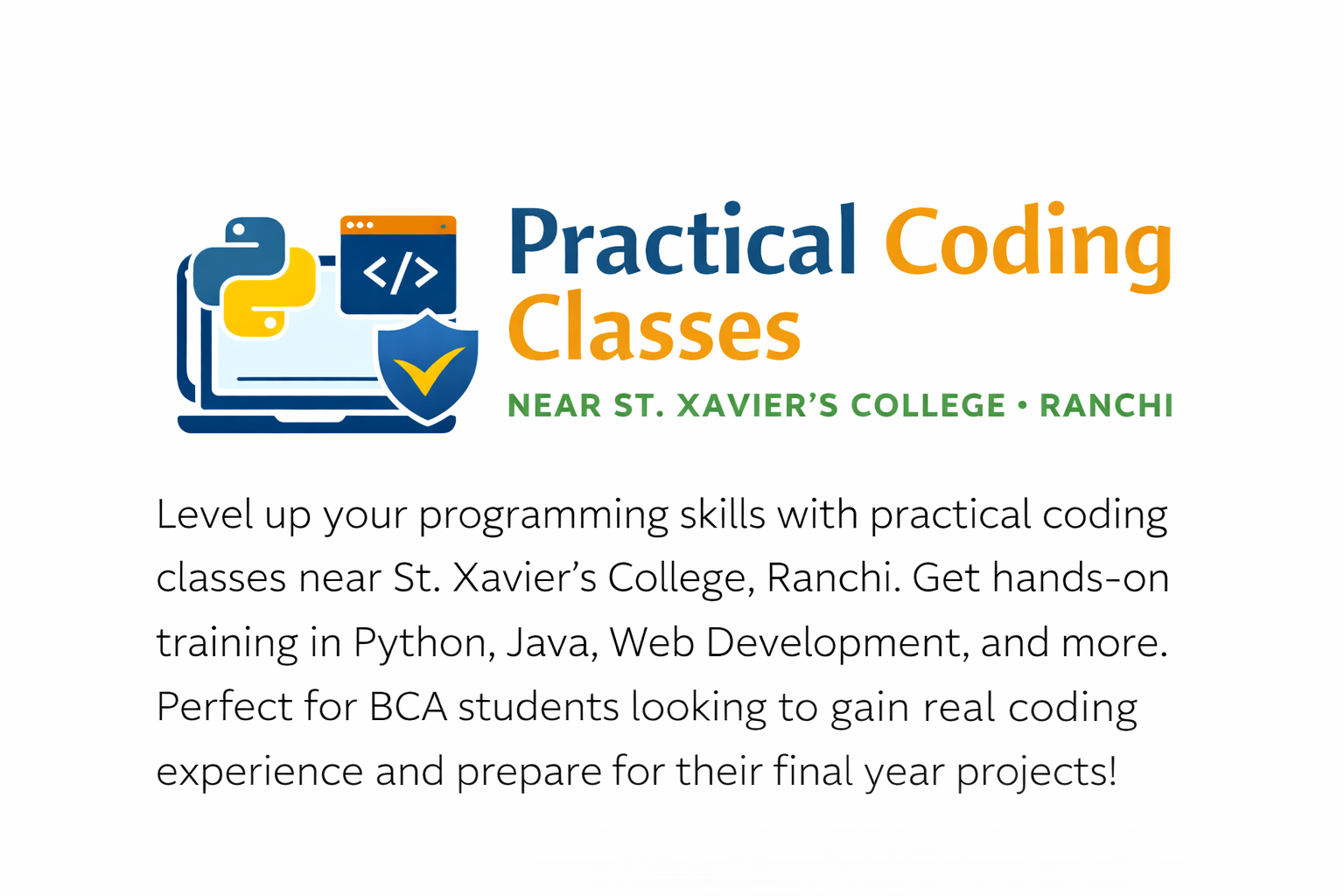Understanding the Entrepreneurial Mindset
An entrepreneurial mindset is characterized by a unique set of traits and skills that enable individuals to identify and seize opportunities effectively. It encompasses various components such as creativity, resilience, risk-taking, and proactive thinking. For BCA (Bachelor of Computer Applications) students, developing this mindset is paramount, as it not only enhances academic performance but also significantly improves career potential in an increasingly competitive job market.
Creativity is a foundational element of the entrepreneurial mindset. It allows students to explore unconventional solutions to problems and fosters innovative approaches in both their studies and future careers. By cultivating creativity, BCA students can develop software or applications that address real-world challenges, thereby enhancing their academic projects and making them more attractive to potential employers.
Resilience, another crucial trait, refers to the capacity to recover from setbacks and maintain focus on goals despite difficulties. In an academic setting, BCA students often encounter obstacles, whether in programming assignments or collaborative projects. Those with a resilient mindset are more likely to persevere, ultimately leading to a better understanding of concepts and higher academic achievements.
Risk-taking is also an essential component of entrepreneurial thinking. BCA students should feel empowered to venture into new areas of technology, take on innovative projects, or even pursue entrepreneurial initiatives while studying. Calculated risk-taking can lead to valuable experiences and learning opportunities that prove beneficial in the long term.
Finally, proactive thinking encourages BCA students to take initiative and anticipate future challenges or opportunities. By developing a proactive approach, students can become agents of change within their schools and communities, which can pave the way for successful careers in technology and entrepreneurship. Numerous successful entrepreneurs began as students who embraced these traits, reinforcing the importance of an entrepreneurial mindset for BCA students.
Cultivating Curiosity and Creativity
In today’s rapidly changing digital landscape, BCA students must focus on cultivating curiosity and creativity as essential components of their entrepreneurial mindset. Fostering a sense of curiosity encourages students to question existing norms and explore fresh perspectives, which is vital in identifying unique opportunities for innovation. Engaging in brainstorming sessions allows students to generate diverse ideas and solutions, pushing the boundaries of their imagination. These sessions can involve collaborative discussions, where participants build on each other’s thoughts, leading to innovative ideas that may not have surfaced individually.
Another effective approach for cultivating creativity among BCA students is participating in hackathons. These events not only provide a platform for students to collaborate intensively on projects but also promote the development of novel solutions within a short timeframe. The pressure of working under time constraints can inspire innovative thinking, enabling students to experiment with unconventional ideas. Additionally, the competitive nature of hackathons encourages participants to think outside the box, enhancing their problem-solving abilities.
Engaging in collaborative projects also plays a crucial role in nurturing creativity. By working with peers from diverse backgrounds and skill sets, students are exposed to different viewpoints and approaches, further enriching their creative processes. This exposure can lead to the development of unique ideas and business concepts that may not have been conceived in isolation.
Importantly, embracing failure as a learning opportunity is essential for fostering both curiosity and creativity. BCA students must understand that setbacks can provide valuable insights that contribute to personal and professional growth. By viewing challenges as stepping stones rather than obstacles, students can confidently explore unconventional ideas, ultimately enhancing their problem-solving capabilities and entrepreneurial mindset.

Networking and Collaboration Opportunities
For Bachelor of Computer Applications (BCA) students, developing an entrepreneurial mindset is crucial, and one of the foundational aspects of this journey is networking and collaboration. Establishing connections with peers, mentors, and professionals in the technology and business arenas not only offers insights but also fosters inspiration and innovative thinking. Networking is not merely an exchange of contact information; it is about creating meaningful relationships that can contribute to future entrepreneurial ventures.
Joining clubs and organizations on campus can significantly enhance a BCA student’s networking opportunities. Many institutes offer tech-specific clubs, entrepreneurship cells, or business associations, which provide a platform for students to meet like-minded individuals. These clubs often organize workshops, seminars, and guest lectures, allowing students to learn from experienced professionals and interact with them directly. Actively participating in these activities can bolster one’s understanding of the industry, leading to potential collaborations on projects or startups.
Attending workshops and industry-related events is another effective method for students to connect with professionals. These gatherings often provide attendees with the chance to engage in discussions, ask questions, and present their ideas. They serve as a conduit for BCA students to showcase their skills, gather feedback, and build a network of contacts who share their entrepreneurial aspirations. Additionally, participating in online forums and communities can help students to engage with a broader audience, enabling them to connect with seasoned entrepreneurs from different geographical locations.
In conclusion, by embracing networking and collaboration opportunities, BCA students can build a supportive community that nurtures their entrepreneurial spirit and equips them with the skills necessary for success in the rapidly evolving technology landscape.
Practical Steps to Start Your Entrepreneurial Journey
Embarking on an entrepreneurial journey as a BCA student requires a structured approach to identify opportunities and transform ideas into viable businesses. The first step is to pinpoint problems that need solving. Engage with your surroundings—consider the challenges faced by fellow students, local businesses, or community members. By understanding these issues, you can think creatively to devise potential solutions that address real needs. This will lay the groundwork for your entrepreneurial endeavors.
Once you have identified a problem worth addressing, conducting thorough market research is imperative. This process includes analyzing competitors, understanding your target audience, and assessing market demand. Collect data through surveys, interviews, and online research to gauge interest in your proposed solution. By comprehensively evaluating the landscape, you will gain insights that not only help shape your product or service but also inform your marketing strategy.
With a clearer understanding of the market, the next step involves developing a business plan. This document should outline your business model, strategy, and the resources you require. It serves as a roadmap, guiding you through the various stages of your venture. Moreover, integrating concepts such as the Minimum Viable Product (MVP) is essential. An MVP allows you to launch a simplified version of your product to gather real-world feedback without extensive upfront investment.
Conclusion
Seeking feedback is critical at this stage. Engaging with potential users will provide you with insights that can refine your offering, enhancing its market viability. Iterative feedback loops allow you to improve your product or service continuously based on user needs and preferences. By actively engaging in this process, you empower yourself to take actionable steps towards entrepreneurship, turning your ideas into realities while embracing the learning curve inherent in the entrepreneurial journey.
Read Our Latest Blog
How to Build Your First Mobile App A Beginner’s Guide
Phone Number: +91-7488456170
Email ID: abhishek@eepl.me
Our Platforms:
Digilearn Cloud
EEPL Test
Live Emancipation
Follow Us on Social Media:
Instagram – EEPL Classroom
Facebook – EEPL Classroom
Stay connected and keep learning with EEPL Classroom !









